"I remember the time when I thought there were two kinds of people in the world - children and grown-ups, - and that the world really belonged to the children."
Curiosity is the personality of youth. The complex ability to hold wonder, to sit in suspense of knowledge and knowing, is something only a mind empty of duties can manage. Rachel Carson, a biologist known for her groundbreaking environmental writing, said her favorite personal endeavor was a tender book called The Sense of Wonder, in which she spent time with her young nephew at the seaside to close-observe rocks, shells, stars, and anything else that washes up into their small but infinite sphere of curiosity. The outdoors, as expansive as it is, is a place of contained magic. David Attenborough, Laurie Lee, and Gerald Durrell upturned rocks, seeking the magic of these spheres, and led lives devoted to similar pursuits. Roald Dahl also played in the family garden as a child and as an adult wrote all of his children's books from a garden shed.
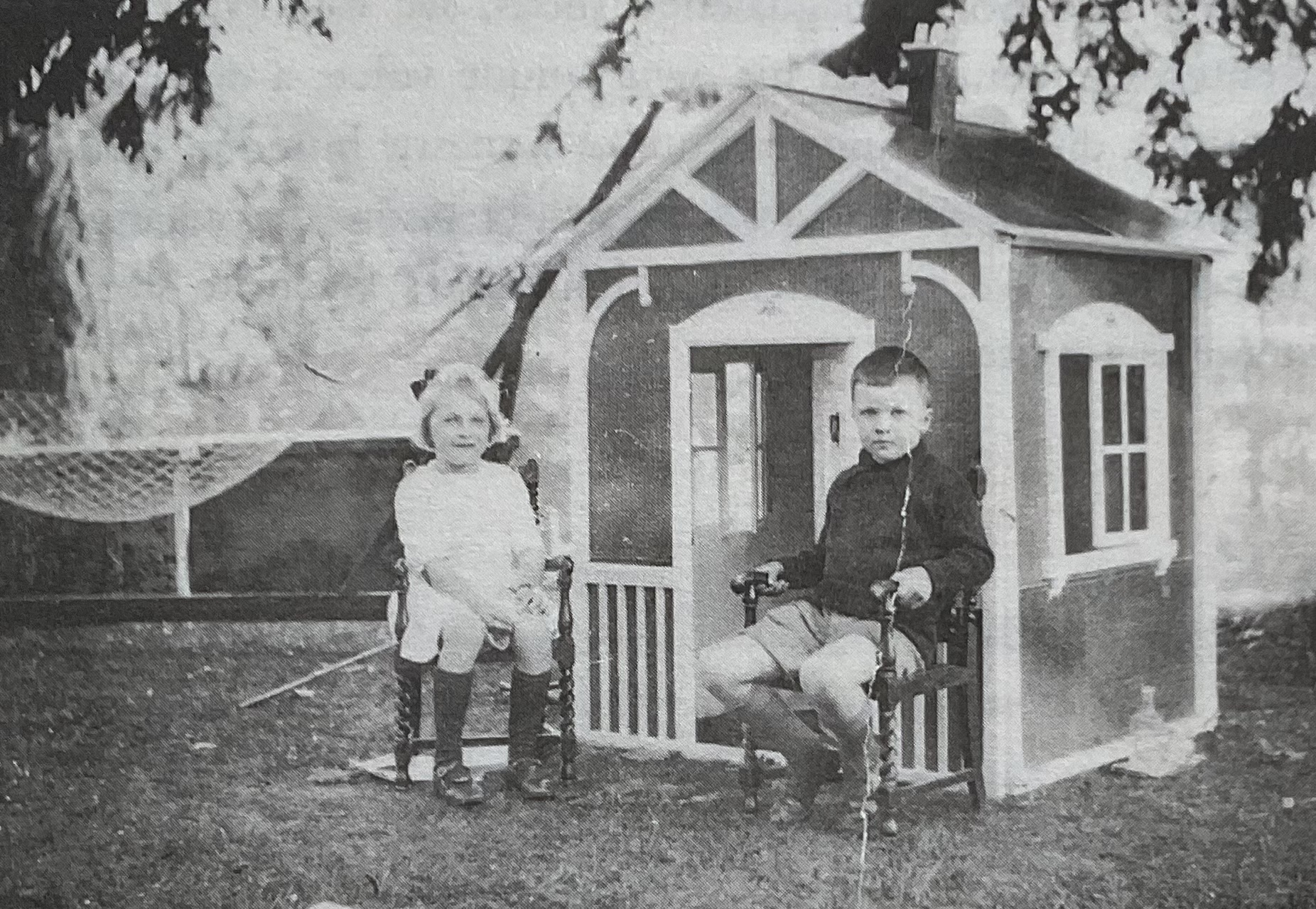 Roald Dahl and his elder sister Alfhild in their garden.
Roald Dahl and his elder sister Alfhild in their garden.The most immediate sphere of curiosity for those lucky enough to have one is the garden. On paths, flowers, shrubberies, small houses, and even smaller tea sets, all which percolate the kind of imagination that creates fairies and sprites. Children and Flower Gardens, written in 1909 by Gertrude Jekyll (November 29, 1843 - December 8, 1932) is devoted to the cultivation of garden pockets and corners where children thrive.
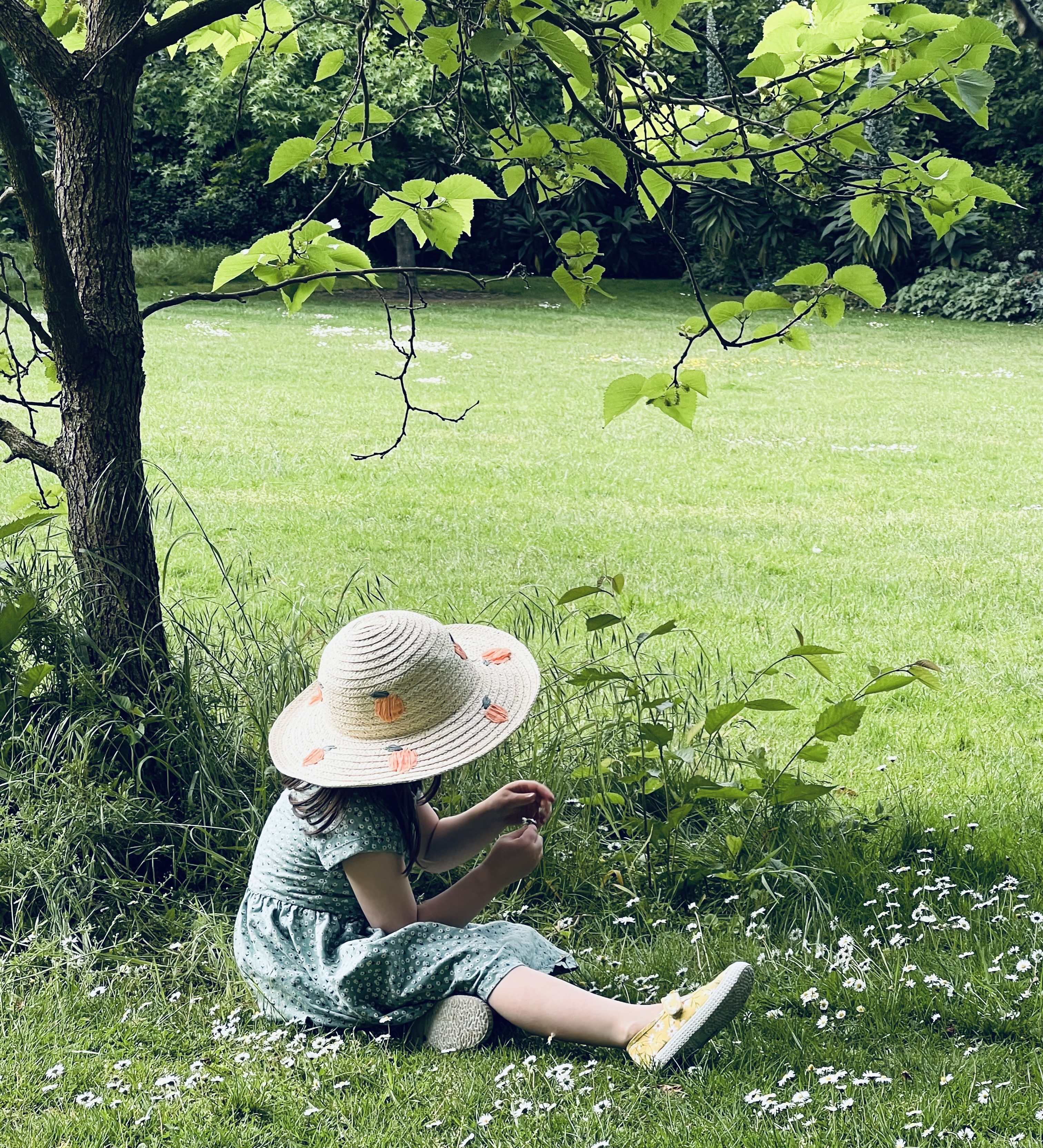 My eldest daughter lost in dream.
My eldest daughter lost in dream.Jekyll was a primary influence on a rejection of formal European designs in favor of nature-led designs, what we now call English gardens. She is still widely read today, equally, for her skill with the pen and simple, enjoyable language that is technical and informative without ever sounding haughty.
Well, do I remember the time when I thought there were two kinds of people in the world-children and grown-ups, and that the world really belonged to the children. And I think it is because I have been more or less a gardener all my life that I still feel like a child in many ways, although from the number of years I have lived I ought to know that I am quite an old woman. But I can still-when no one is looking-climb over a five-barred gate or jump a ditch; but then I was always strong and active in my limbs.
Jekyll's book is for children and is rooted in Jekyll's own remembered childhood. She writes about a time when children reached for books and plotted out their simple futures. The language is tender, detailed, and helpful for things like drying herbs, weeding, and sowing and labeling seeds.
When I was young one used often to see what I think is a very silly way of sowing annuals. A little ring, about as big as a dinner plate, was scratched in the ground, the seed was sown in this much too thick, and the seed-paper, with the name of the plant on it, was pushed into a cleft in the top of a short stick which was stuck in the middle of the ring. Bits of paper always look bad about a garden, and it is a lazy way of marking the plant. Gardens look much better if you can do without any labels, but if you must have them the nicest are bits of hazel stick cut about a footlong and pointed, with the top end shaved flat for a length of about two inches to write on. It must not be shaved too deep, because in the middle of the stick there is a little pithy hollow. Then you have a little pot of white-lead paint, a small dab of which on the end of some other bit of stick you smear over the shaved part. Then with a bit of rag or paper, you smooth it over and rub most of it off. Then you write the name of the plant with a soft pencil in the thin coating of wet paint. I always have the paint in the bottom of a small-sized jam-pot, and have a bit of rag big enough to crumple into the top of the pot without touching the paint, so that it keeps most of the air away that would dry it up and make it unfit to use.
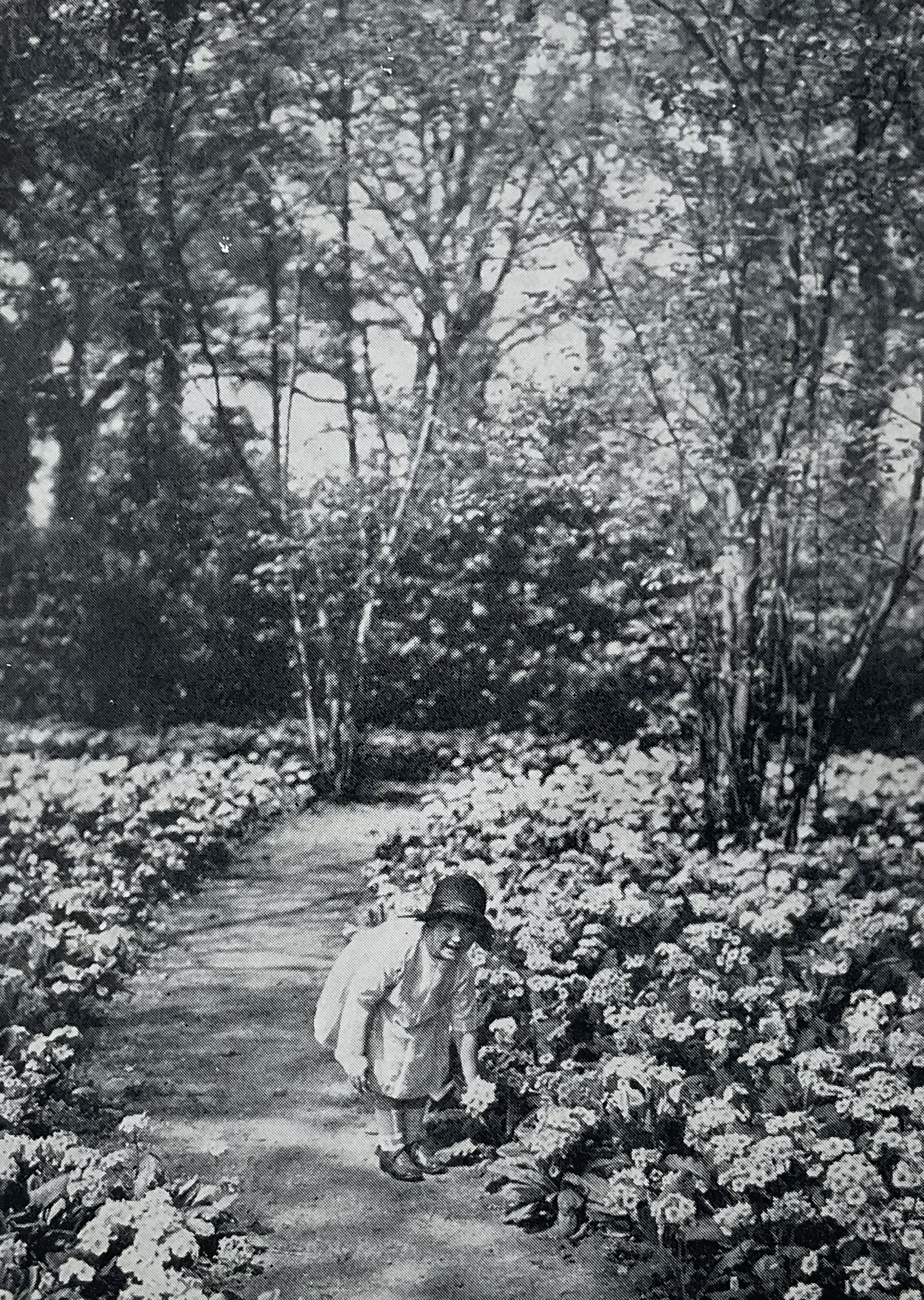 "In Miss Jekyll's garden."
"In Miss Jekyll's garden."Although she was an admitted older woman when she wrote Children and Gardens, Jekyll lived for an additional twenty-five years after its publication. Towards the end of her life, her eyesight became poorly and her ability to garden waned, but perhaps that allowed her to dive deeper into her memory and write from a child's vantage point. One might then understand her advocation of an entire small home - with water and electricity - out in the garden.
It is a little house somewhere in the garden or shrubland, consisting of a kitchen and a sitting-room. If it can have an enclosed porch so much the better. In the kitchen the children make and bake little scones and cakes, and serve them at the tea that is laid in the adjoining sitting-room, and learn the elements of even more serious cookery, such as jam-making and simple ways of cooking eggs, and any advance on these beginnings that their taste or capacity may seem to ask for. The little house would be provided with all necessary fittings-a cooking-stove in the kitchen, a dresser, a cupboard, and a stout little kitchen table with a drawer. If it can have a small pantry containing a water supply and a sink, where the crockery is washed up and water drawn, and a round towel handy, it will be better than if these necessaries were in the kitchen itself.
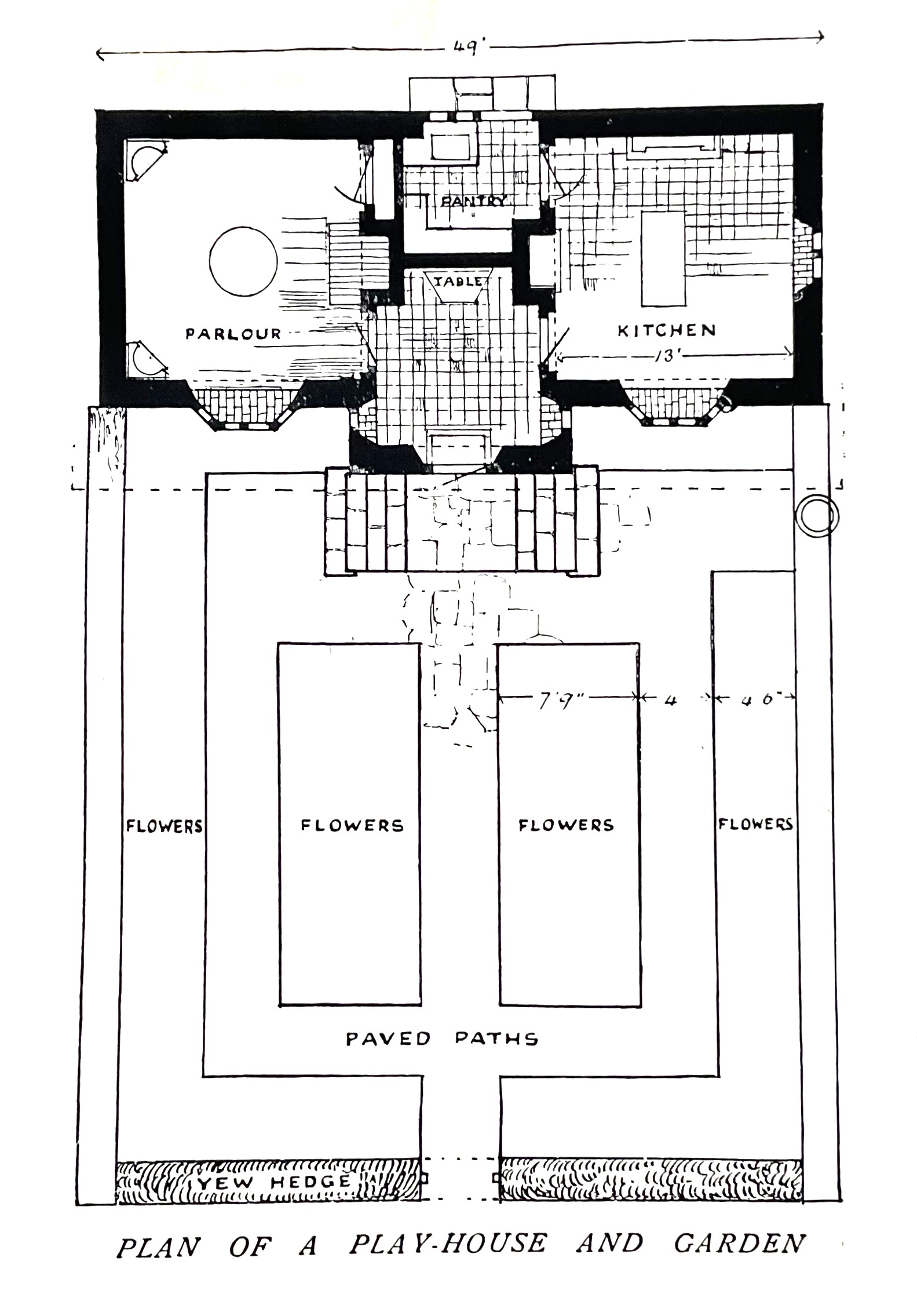 "Plan of a play-house and garden."
"Plan of a play-house and garden."The beautiful yet unattainable playhouse notwithstanding, it is the arrival of animals and wildlife that really demonstrates Jekyll's childlike excitement. She coupled the text with her own photographs.
Perhaps you will say that the lawn is not the sort of place where you expect to meet with adventures. Well, perhaps it is not, and yet such odd and unexpected things happen on it, things that are so deliciously thrilling, that I think I am hardly using too strong a word when I say "adventures." This summer it is hedgehogs. They are such interesting, mysterious creatures. I do not know how many there are about, but hardly a day passes without my seeing or hearing one. Of course, they are easy to see when they come out on the lawn, and when I say "hearing one" I don't mean that it squeaks or grunts or makes any vocal sound, but that I hear the harsh noise of its bristles as it pushes through the low-lying branches of the shrubs at the edge of the grass. I had always great delight in watching and feeding the fire at the garden burn-heap.
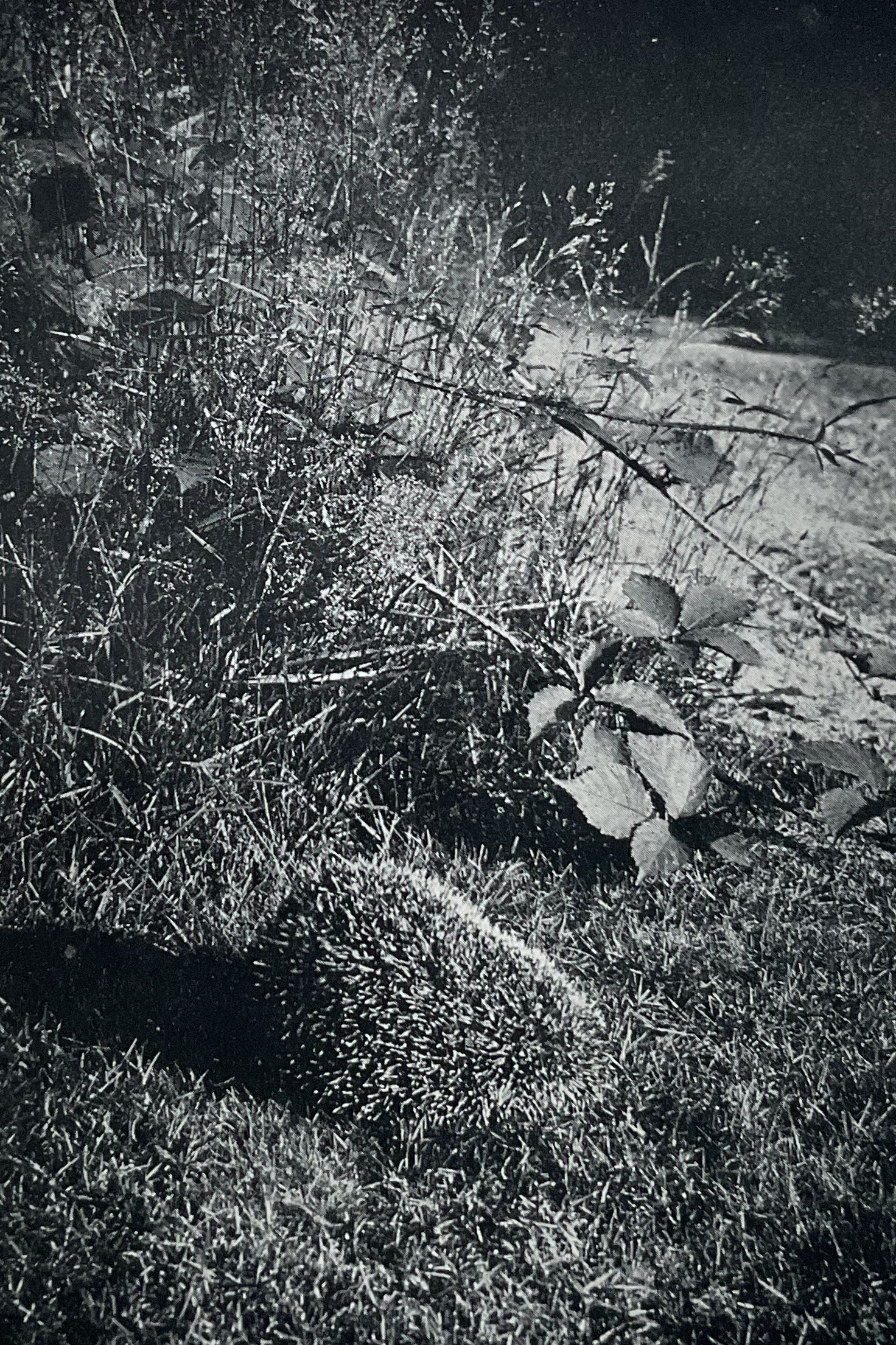 "Hedgehog out for an evening prowl."
"Hedgehog out for an evening prowl."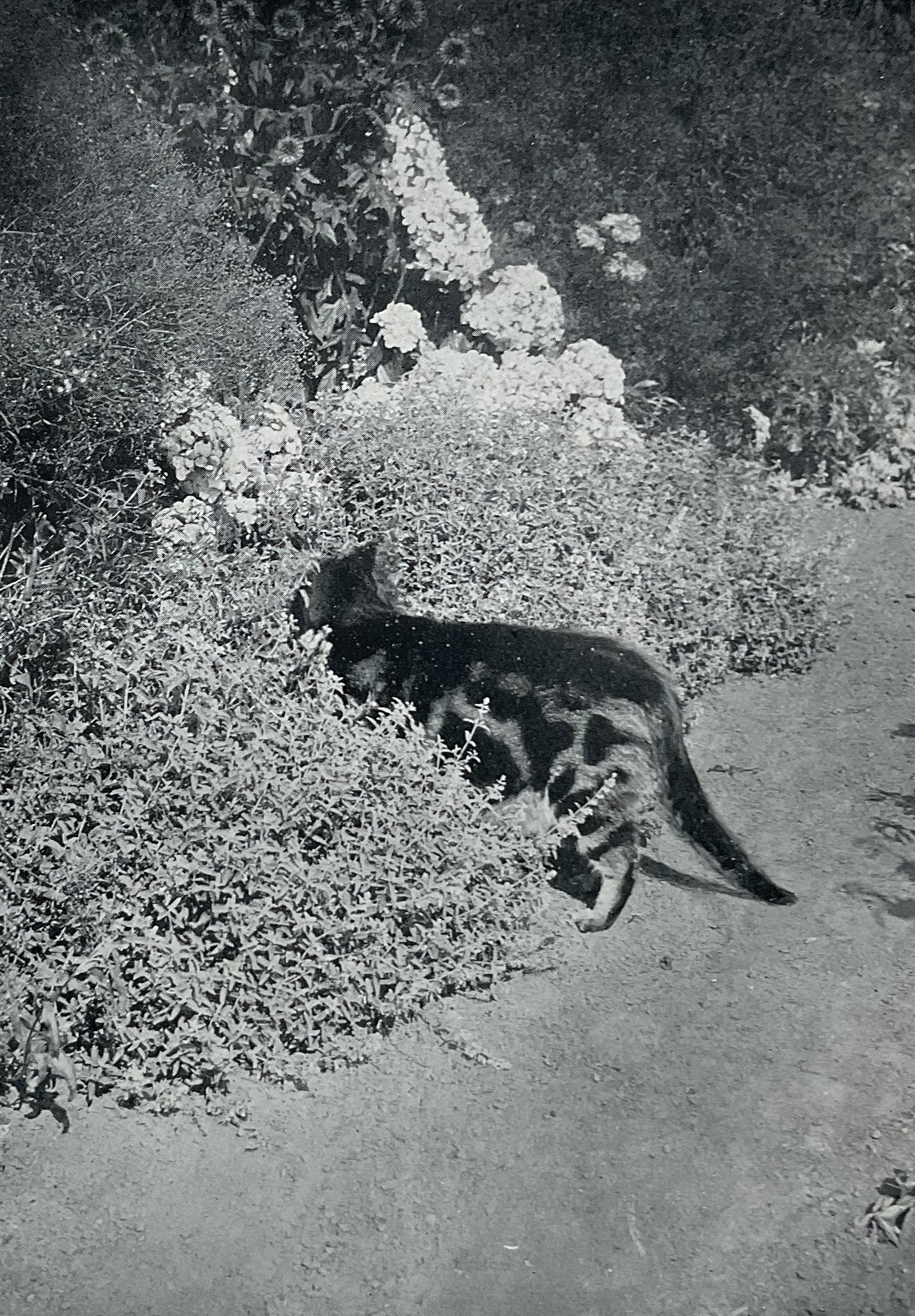 "Tabby in the cat-mint. 'This smells very good.'"
"Tabby in the cat-mint. 'This smells very good.'"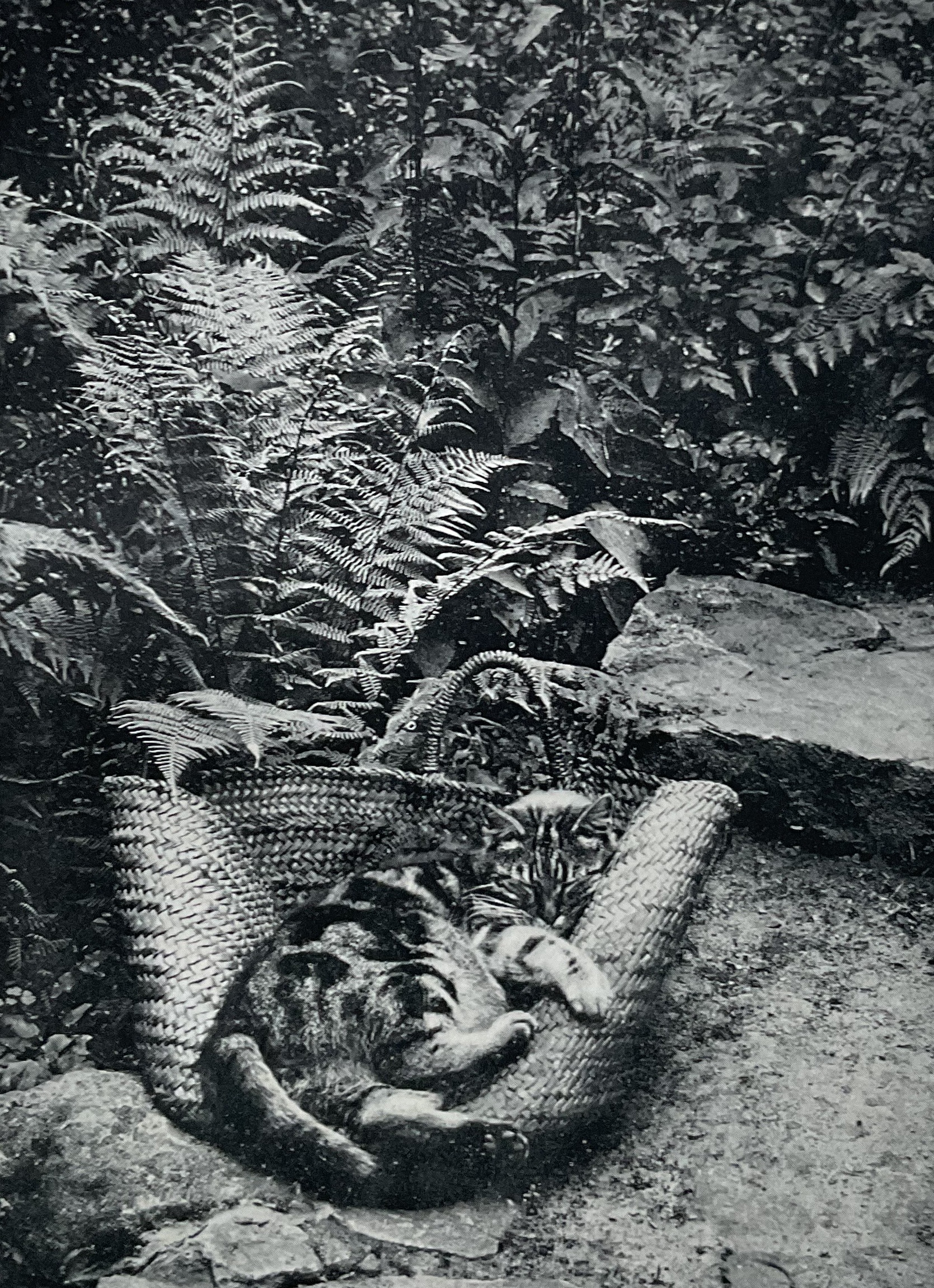 "Still more comfortable."
"Still more comfortable."From the stabilizing relationship between gardening and the mind’s furrows, the social implications of gardening, and the grounding of a nation in its gardens and gardeners, creating and cultivating nature delivers equal joy and satisfaction. Read more in Jekyll's equally wonderful guide to garden planning by color or visit one of her beloved gardens which still reflects her childlike appreciation for space and curiosity.


